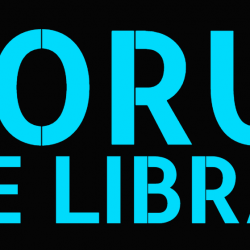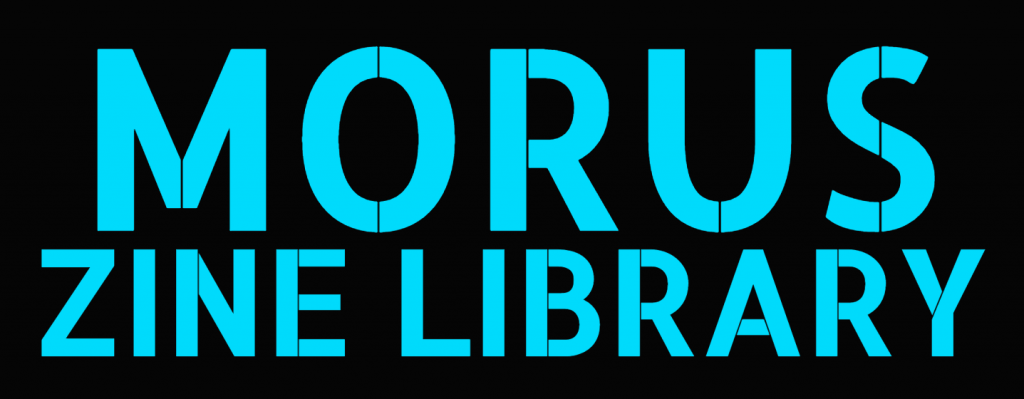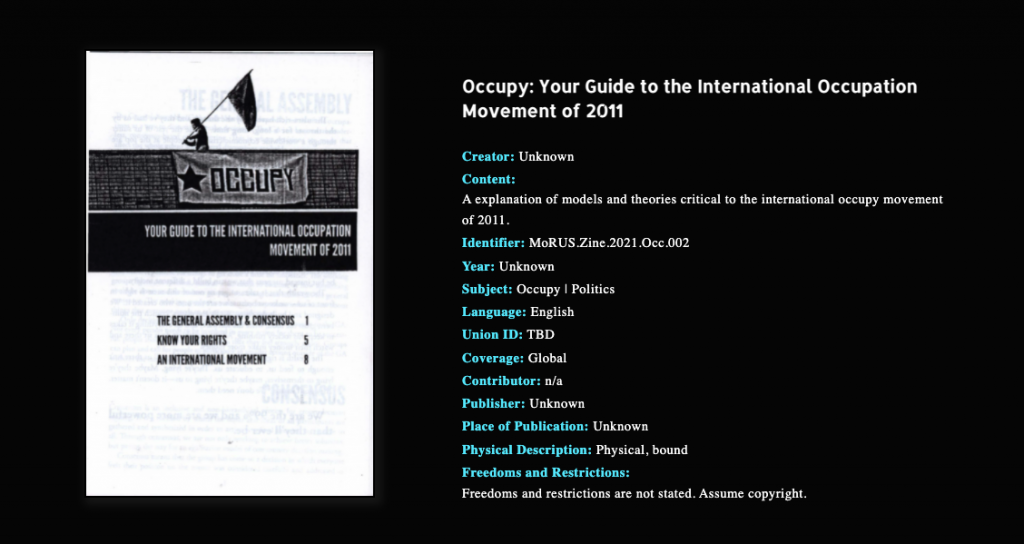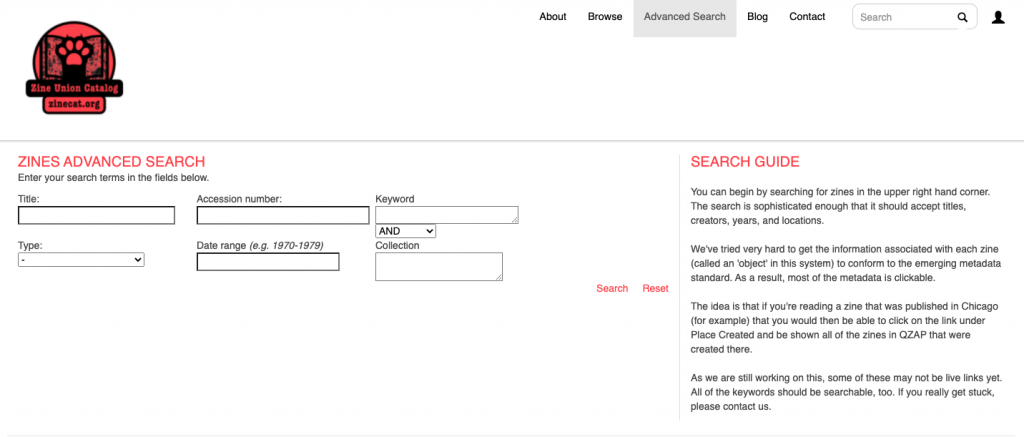January 2022 – The MoRUS Zine Library is Here

30 January 2022
By John C. Harris

Link to the library here!
The MoRUS Zine Library is complete! Click the link to explore our collection and dive into topics ranging from the squatting movement of New York City to the radical use of common plants and fungi in everyday life. And everything else in between. But you might be asking yourself, “What even is a zine?” or, “Couldn’t I just read a blog? Like the blog I’m reading right now!?”
Well there is no universal definition of a zine. Perhaps their most persistent attribute is their dynamacity. From their conception zines have evolved to meet the needs of the sub-culture in which they originate. Their use in circulating information across and throughout diverse scenes and interest groups is founded on their ability to confront the confines of traditional print media. Those confines being an industry dominated by extraordinarily wealthy entities, as well as the costs of publication and distribution, and of course the need to appeal to the masses by producing content that will sell. That is not to say that traditional print media did not have its exceptions to these rules. However, zines succeed at subverting these standards as they are generally self-published, or independently published, and have few limitations to their distribution which comes generally at no or low cost. And because of the two aforementioned factors zines are capable of exploring obscure, sometimes niche, and often transgressive topics.

Occupy: Your Guide to the International Occupation Movement of 2011 with xZineCorex metadata fields. Full PDF available online.
These aspects are what made the original “fanzines” of 1930s science fiction lovers so popular and contributed to the revival and proliferation of zine culture within the 1980s DIY punk scene. As the underground press of the 1960s and 70s faded and the counterculture evolved, zines, and typically more than one at a time, often took the place of monthly papers. Over the decades, counterculture made its way online and into the digital sphere in the form of blogs which are uniquely capable of openly distributing ideas that challenge the status quo. But as Barnard Zine Librarian, Jenna Freedman makes clear, “Zine’s are not blogs.” However, zines are still very important despite the development and evolution of transmissible information online. Their ability to elevate marginalized voices and explore topics alternative to the norm is unmatched. That is because once again, the authors of zine are beholden to no one’s expectations, and they can distribute their work for the cost of access to a copy machine.
Recognizing those values which dedicated fans, curious readers, and researchers alike find in zines, librarians Jenna Freedman and Lauren Kehoe embarked on creating the Zine Union Catalog. This key resource is used to research the zine holdings of libraries across the country. Inspired by their actions, MoRUS ran a complete inventory of its zine holdings, cataloged their metadata in the xZineCorex format provided by the ZineCat project, and digitized the collection to create the MoRUS Zine Library. Our goal is twofold: first, to elevate and make accessible in the digital realm the oftentimes disenfranchised and marginalized voices speaking to the topics within our collection scope and second, to contribute to and take part in the ZineCat project by having our holdings represented in the catalog. While our collection tops out around a modest hundred unique zines compared to the over 8,000 items from the Denver Zine Library or the 12,000 plus zines from ABC No Rio’s collection, our mission of preserving and promoting the history of grassroots activism in the Lower East Side, supported by our collection policy, assures that our zine library is uniquely capable of documenting and promoting works which pertain to housing, community, and environmental initiatives which occurred, and continue to take palace, in the neighborhood.

The “Advanced Search” page of the Zine Union Catalog.
Moving forward we intend to update our zine library and website twice a year to include future accumulation of zine donations and pickups from various events. If you happen to see your work featured in our online library and would like to see that the information or credit given to it be changed in any way, or the removal of your zine from our website please reach out to archives@morusnys.org and we will get to work on it right away.
